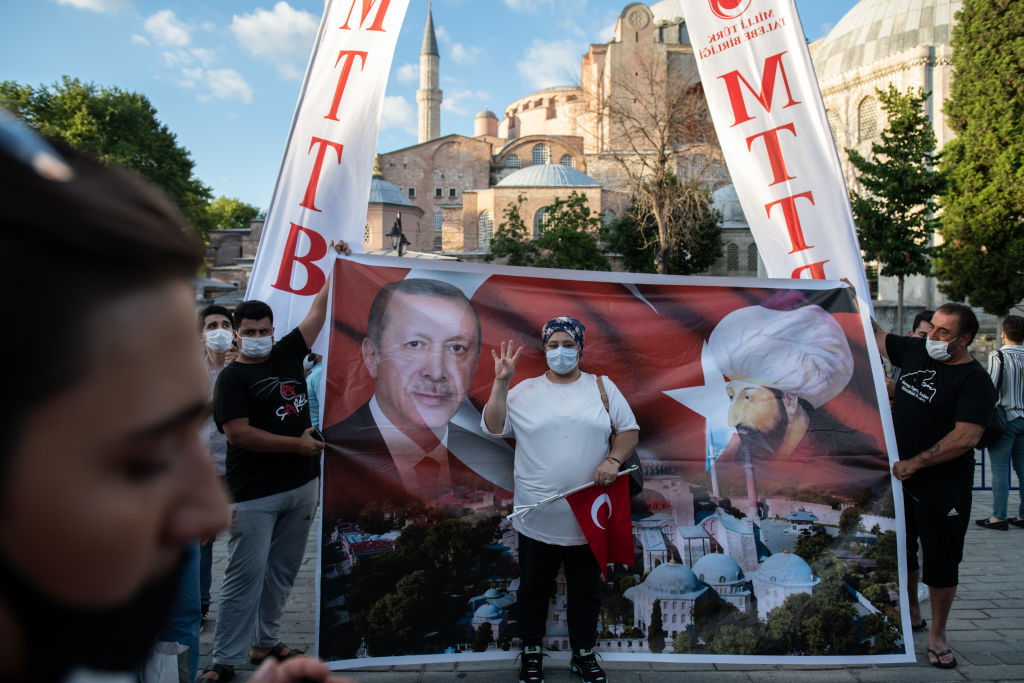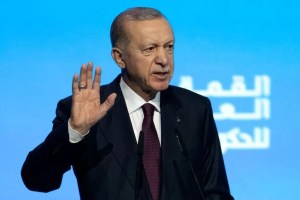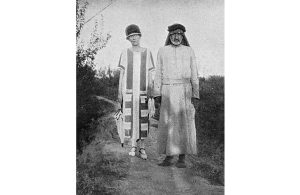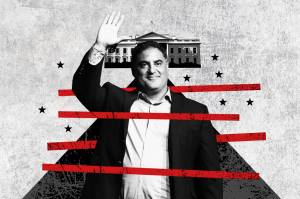Here in Greece the temperature is rising. As July rolls on, the heat thickens: people become irritable in 40 degrees. Now they have even more reason for anger. Last Friday, Turkish president Recep Tayyip Erdogan declared that Istanbul’s Hagia Sophia would open for Muslim prayers as a mosque. He made the announcement after a Turkish court ruled that Kemal Atatürk’s 1934 conversion of it to a museum was illegal.
Hagia Sophia is both historic and religiously central to millions of people. Completed in 537, it served first as the cathedral of Constantinople and stood as an Orthodox church until the Fourth Crusade in 1204, when Christian knights from the west converted it to a Roman Catholic church. This was a move swiftly reversed with the return of the Byzantine Empire in 1261. Unsurprisingly, it has loomed large in the spiritual imagination for Christians of all stripes ever since. On hearing the news Pope Francis was blunt: ‘My thoughts go to Istanbul. I think of Santa Sophia and I am very pained,’ he said.
Nonetheless, Turkey will press on. Erdogan said the first Muslim prayers would be held in Hagia Sophia on July 24. Speaking to a Greek friend who was at Hagia Sophia when the move was announced was instructive. ‘It was strange’, he told me. ‘There were hundreds of people chanting and shouting Allahu Akbar — I never expected to hear this at Hagia Sophia — and also some nationalists, the so-called Gray Wolves (a Turkish far-right party), doing the famous wolf sign they do. Then the call for prayer rang out and they all began to pray. I was angry and sad. I tried to hold back my tears, which surprised me. I don’t go to church and I’m not religious: but seeing this happen, and being Greek Orthodox, I feel the significance of what is happening.
Erdogan knew the move would prompt near universal outrage from Christian (especially Orthodox) communities across the world. So why did he do it?
There are several reasons: Hagia Sophia stood as a center of Christianity until the Ottoman conquest of Constantinople in 1453 when it was turned into a mosque. When Atatürk decided it would become a museum, he made the decision not because he wanted to promote Turkish tourism but Turkish secularism. He was sending a clear message: modern Turkey would be secular, western and modernizing — markedly different from everything the Ottoman caliphate before him had represented. Secularism was central to the Kemalist project. From changing the alphabet from the Arabic to the Latin script to banning the veil and religious symbols in official circles, it was at the heart of the Turkish state.
Erdogan’s Justice and Development party has long had Islamist tendencies (though it consistently denies this), and long sought to change the secular status quo. Since Erdogan has been in power, religion has moved to the heart of Turkey once more. The Hagia Sophia decision is about cementing this process and burnishing Erdogan’s global profile in the Muslim world: ‘Hagia Sofia first, then al-Aqsa’ he declared. His intent could not have been more obvious.
But if global grandstanding is a consideration it is subordinate — as is almost always the way with political posturing — to domestic concerns. The Turkish Republic is nearing its centenary in 2023. How will the country look 100 years on from its inception? This is something that, according to Dimitris Triantaphyllou, professor of international relations at Kadir Has University, Istanbul, is very much on Erdogan’s mind. ‘Since 2002 Erdogan has focused on changing the landscape of his country’, he says. ‘He wants to create a new Turkey, which is a synthesis of the most extreme, anti-western Kemalist elements and his own Islamist ideology.’
[special_offer]
Atatürk said Turkey belonged to the West, which for him was synonymous with modernization. But in the eyes of many Turks, the modern west has rejected modern Turkey, whose EU ambitions it now knows will never be realized. Ankara’s mantra now is simple: the West is not to be trusted.
And in the meantime, there is the need to to stay in power. And things aren’t great. Ankara is over stretching itself in Syria. At home, inflation is now at over 12 percent and unemployment forecast to be at just under 17 percent by the end of the year. God can take only you so far.
The Justice and Law party reformed the electoral system to mean that general election winners need 50 percent plus one vote to win. Erdogan continues to win — but he sweats a lot to do so. What he now needs, according to Triantaphyllou, is to ‘keep the believers mobilized’. Hagia Sophia was another political move in this vein, for a Turkey drifting ever further away from the West and closer toward autocratic atavism.
This article was originally published onThe Spectator’s UK website.


















